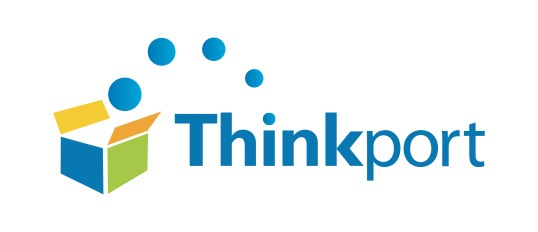Tips & Resources | Young Children

Media literacy can help young children develop healthy relationships with media that support their learning and development.
MPT’s Media STEPs for young children is a structured approach to support parents, caregivers, and teachers in using media as a fun and engaging learning tool.
Together, Media STEPs and the center’s carefully curated resources will guide you and your young children toward developing media literacy skills that inspire learning, curiosity, and positive media habits.

Select educationally sound content you can trust. The media you choose exposes kids to new language, behavior, and information. Be sure that the content supports your values.

Talk with kids about what they are seeing and hearing. Talking with kids out loud helps them process what they are learning and build language skills.

Explore new ideas together. Media is a great springboard to spark curiosity.

Play is the best way for young children to learn! Use media to inspire playful learning on screen and off so that kids have enough time away from screens to be hands-on, active, and creative.
Featured Resources
For Families

PBS KIDS for Parents
PBS Kids provides developmentally appropriate educational media and community-based programs to help families support young children with academic and life skills, including healthy media habits.
Audience: Families, Young Children, Educators
Formats: Shows, Games, Articles, Videos, Activities
For Educators

MPT | Thinkport
Thinkport offers PreK-12 educators, childcare providers, students, and their families a wealth of standards-aligned resources ranging from STEM and ELA to social studies and media literacy.
Audience: Families, Educators
Formats: Classroom Materials, Learning Resources, Online Courses
Resources
Explore curated resources to support young children in developing media literacy skills and healthy media habits.Understanding Media Literacy
Common Sense Media | How do I start teaching media literacy to my preschooler?
Learn practical, age-appropriate tips for teaching your preschooler how to think about media. This article provides questions to ask your child to get them thinking and talking about the media they encounter regularly, including TV shows, commercials, movies, storybooks, and games.
Audience: Families
Format: Article
NAMLE | Core Principles of Media Literacy Education
Explore the meaning of media literacy by examining the Core Principles of Media Literacy Education developed by the National Association for Media Literacy Education (NAMLE). This framework for educators can provide helpful information for families about how media literacy might be taught in schools.
Audience: Families, Educators
Format: Framework (PDF)
WBUR | How to teach media literacy to children
Discover what media literacy experts Erin McNeill, founder of Media Literacy Now, and Faith Rogow, founding president of NAMLE have to say about how to teach media literacy to children. This recorded interview includes insights and approaches that you can apply to support your children.
Audience: Families, Educators
Format: Podcast (audio and transcript)
Media Literacy Skills and Behaviors
American Academy of Pediatrics | Building Healthy Relationships with Media: Essential Skills for Children 10 and younger
Find practical strategies that you can use to support children in developing healthy media habits, including managing screen time, and using critical thinking, self-regulation, and safety skills. This resource also includes skill-building activity cards that you can print and use with your children.
Audience: Families
Format: Digital Tool
AT&T Screen Ready: Healthy Digital Habits for Parents & Families
Explore a collection of tips for healthy digital habits that focus on topics such as parental controls, co-viewing, regular discussion, and modeling healthy digital habits. These tips, developed in partnership with the American Academy of Pediatrics, include downloadable tip sheets and videos.
Audience: Families
Formats: Tip Sheet, Videos
Boston Children’s Digital Wellness Lab | Family Digital Wellness Guide
Discover how you and your family can use media in ways that create positive effects on your mental and physical health. Based on clinical evidence and scientific research, this guide discusses the benefits and risks of digital media use and provides strategies to support healthy habits from birth to young adulthood.
Audience: Families
Format: Digital Guides
PBS Learning to Read | Media Literacy
Learn different ways to introduce and build media literacy skills with young learners through various activities. This collection of videos from PBS is designed to help you support children with navigating media, leveraging it for learning, and using it in healthy ways.
Audience: Families, Educators
Format: Videos
Media Creation and Engagement
Code.org | Anyone can learn Computer Science
Support your children or students in learning computer science with this series of grade-level videos, tutorials, and activities, including courses for pre-readers. These student-facing courses are designed for all levels of coding experience and can be completed anytime from anywhere.
Audience: Families, Children, Educators
Formats: Videos, Activities
Common Sense Media | New Strategies to Get Kids to Create Media, Not Just Consume It
Discover new ways to engage children with media through creative activities and digital tools. This article provides a variety of ideas and recommended tools for younger and older children to create media. Ratings and reviews of the tools are also available.
Audience: Families, Children, Educators
Format: Article
PBS LearningMedia | Create Media with PBS KIDS ScratchJr | PBS KIDS Self-Paced Learning
Support children’s media creation skills with digital tools and non-digital materials. This resource includes school and home materials and activities that can be completed at a child’s own pace. Be sure to look at the additional resource recommendations on the page to extend learning.
Audience: Families, Educators
Formats: Videos, Lessons, Handouts
PBS Learning to Read | Media Literacy
Learn different ways to introduce and build media literacy skills with young learners through various activities. This collection of videos from PBS is designed to help you support children with navigating media, leveraging it for learning, and using it in healthy ways.
Audience: Families, Educators
Format: Videos
Thinkport | Media STEPs for Families
Follow MPT's Media STEPs and use trusted media to inspire learning at home. From outdoor fun and nature discoveries to conversation starters and activity guides, you will discover ways to play and learn with children using hands-on activities and free digital content.
Audience: Families
Formats: Activities, Videos
Media Influences and Effects
American Academy of Pediatrics | Constantly Connected: How Media Use Can Affect Your Child
Examine research findings about the risks and benefits of children’s media use. Learn about specific symptoms of risk factors and what you can do to minimize risks and support the overall well-being of your family. This article features an interactive family media planning tool and additional resources to support healthy habits.
Audience: Families
Format: Article
Children and Screens: Institute of Digital Media and Child Development
Learn about issues related to media’s impact on child development. This site offers research, resources, and information about brain and cognitive development, mental health, social media, social relationships, and gaming. It also highlights events, grants, policies, and news related to digital media and its impact on children.
Audience: Families, Educators
Formats: Searchable Resources, Podcasts, Tip Sheets, Webinars, Videos, FAQs, Articles
Joan Ganz Cooney Center | Why Children Are Susceptible to Online Misinformation
Examine findings from research studies about children and their susceptibility to misinformation. Discover why their susceptibility may be driven by the medium rather than the message and how strategies like “lateral reading” and “critical ignoring” might help.
Audience: Families, Educators
Format: Blog
NCTSN | Tips for Parents and Caregivers on Media Coverage of Traumatic Events
Learn how parents and caregivers can support children who are exposed to traumatic events through media. This downloadable tip sheet provides examples of media exposure and guidance on what parents can do to help their children and themselves if they are exposed to or included in the media coverage.
Audience: Families
Format: Tip Sheet (PDF)
Zero to Three | Screen Sense: All the Need-to-Know Research on Screens for Children Under Three
Discover research about the effect that early and repeated exposure to screens has on young children. This recorded webinar addresses whether and how young children learn from screen experiences and provides strategies to help families and educators decrease negative impacts. A frequently asked questions (FAQ) document is also available for download.
Audience: Families, Educators
Formats: Video, FAQ (PDF)
